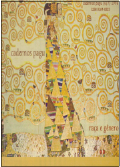Resumo
Resumo
Este artigo discute o conceito de crossover, um componente complexo da ideologia racial como vivida na cultura dos Estados Unidos, enfatizando a relação entre gênero e etnicidade. Crossover refere-se a uma substantiva transformação da música, do comportamento percebido como culturalmente significativo e da vestimenta dos músicos. A significação cultural estaria na presumida diferença de etnicidade entre o grupo do qual a música ou o músico se originam e a população alvo da transformação. Acima de tudo crossíng over está adaptando uma expressao musical especifica ao mercado.
Abstract
This paper discusses the concept of crossover, a complex component of racial ideology as lived in the United States culture, paying attention to the relation between gender and ethnicity. Crossover refers to a substantive transformation of music and the perceived-yet-culturally-significant behavior and dress of musicians. The cultural signification lies in the presumed different ethnicity between the group from which the music or musician comes and the target population of the transformation. Above ali, crossing over is adapting one's musical expression to a perceived market.
Referências
CAMPBELL, H. Rasta and Resistance: from Marcus Garvey to Walter Rodney. Trenton, Africa World Press, 1987, p.139.
CHAPPLE. S. e GAROFALO. R. Rock and Rol/ is Here to Par: lhe history and politics of the music industry. Chicago, Nelson Hall, 1980.
DEAN, P. H. The Sty o, the Blind Pig and Others Plays. Indianapolis, Bobbl-Merrill. 1973.
FABRIKANT, Geraldine. "The Harder Struggle Faced by Makers of Black Films". The New York Times, 11 de novembro de 1996.
GAROFALO. R. "How Autonomous is Relative: popular music, the social formation and cultural struggle". Popular Music 6(1): 81, 1987.
GEORGE, Nelson. The Death o( Rhythm and Blues. New York, E. P. Dutton, 1988.
HATCH, D. e MILLWARD, S. From Blues to Rock: an analytica/ history o( pop music. Manchester, Manchester University Press, 1987. p.131.
HEBDIGE. D. e MILLWARD. S. Subcu/ture: the meaning o, sty/e. London, Methuen, 1979, p.17.
HUGHES, L. Select Poems or Langston Hugues. New York, Knopf, 1959.
JANSON PEREZ, B. "The Political Facets of Salsa", Popular Music 6(2): 151, 1987.
MARCUS, G. UThe Modernist Sensibility in Recent Ethnographic Writing and the Cinematic Metaphor of Montageu. SVA Review 6(1): 4, 1990.
MARTINEZ-ALlER, V. Marriage, Class and Colour in Nineteenth Century Cuba. Cambridge, Cambridge University Press, 1974.
PATTISON, R. The Triumph of vulgarity: rock music in lhe mirror of romanticism. New York, Oxford University Press, 1987.
ROOT, Deborah. Cannibal Culture: Art, Appropriation and the Commodification o( Difference. New York, Watview Press, 1996
ROSE, Tricia, Black Noise: 'rap' Music and Black Culture in Contemporary America, Hannover, New Hampshire, University Press of New England, 1994.
TORGOVINICK, Mariana. Gone Primitive: Savage ./ntel/ects, Modern Uves. Ch1cago, University of Chicago Press, 1990.

